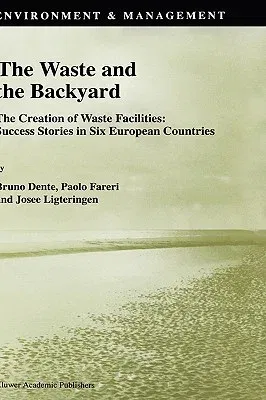The Waste and the Backyard: The Creation of Waste Facilities: Success Stories in Six European Countries (1998)Hardcover - 1998, 31 March 1998

Qty
1
Turbo
Ships in 2 - 3 days
In Stock
Free Delivery
Cash on Delivery
15 Days
Free Returns
Secure Checkout

Part of Series
Environment & Management
Print Length
226 pages
Language
English
Publisher
Springer
Date Published
31 Mar 1998
ISBN-10
0792350286
ISBN-13
9780792350286
Description
Product Details
Book Edition:
1998
Book Format:
Hardcover
Country of Origin:
US
Date Published:
31 March 1998
Dimensions:
23.39 x
15.6 x
1.42 cm
Genre:
Ecology
ISBN-10:
0792350286
ISBN-13:
9780792350286
Language:
English
Location:
Dordrecht
Pages:
226
Publisher:
Series:
Weight:
508.02 gm